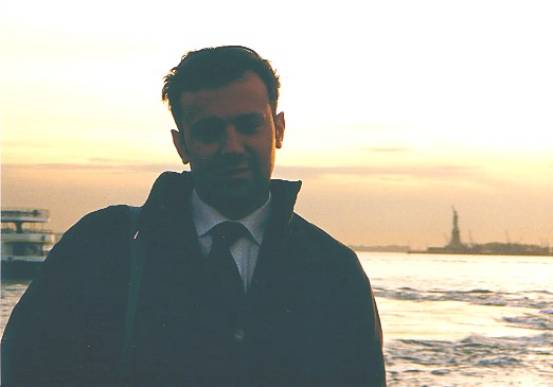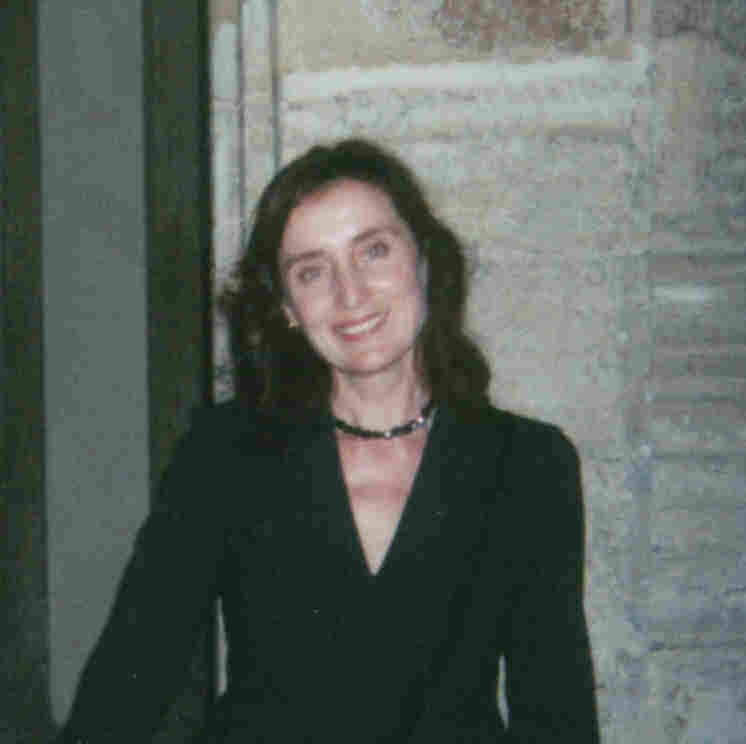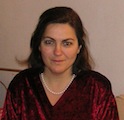Studying at the University of Verona
Here you can find information on the organisational aspects of the Programme, lecture timetables, learning activities and useful contact details for your time at the University, from enrolment to graduation.
Academic calendar
The academic calendar shows the deadlines and scheduled events that are relevant to students, teaching and technical-administrative staff of the University. Public holidays and University closures are also indicated. The academic year normally begins on 1 October each year and ends on 30 September of the following year.
Course calendar
The Academic Calendar sets out the degree programme lecture and exam timetables, as well as the relevant university closure dates..
| Period | From | To |
|---|---|---|
| I semestre | Oct 1, 2008 | Jan 17, 2009 |
| II semestre | Mar 2, 2009 | May 30, 2009 |
| Session | From | To |
|---|---|---|
| Sessione esami invernale | Jan 19, 2009 | Feb 28, 2009 |
| Sessione esami estiva | Jun 3, 2009 | Jul 11, 2009 |
| Sessione esami autunnale | Sep 1, 2009 | Sep 30, 2009 |
| Session | From | To |
|---|---|---|
| Sessione lauree autunnale | Nov 24, 2008 | Nov 28, 2008 |
| Sessione lauree invernale | Apr 15, 2009 | Apr 18, 2009 |
| Sessione lauree estiva | Jul 13, 2009 | Jul 17, 2009 |
| Period | From | To |
|---|---|---|
| Festa di Ognissanti | Nov 1, 2008 | Nov 1, 2008 |
| Festa dell'Immacolata Concezione | Dec 8, 2008 | Dec 8, 2008 |
| Vacanze di Natale | Dec 22, 2008 | Jan 6, 2009 |
| Vacanze di Pasqua | Apr 6, 2009 | Apr 14, 2009 |
| Festa della Liberazione | Apr 25, 2009 | Apr 25, 2009 |
| Festa del Lavoro | May 1, 2009 | May 1, 2009 |
| Festa del Santo Patrono | May 21, 2009 | May 21, 2009 |
| Festa della Repubblica | Jun 2, 2009 | Jun 2, 2009 |
| Vacanze estive | Jul 20, 2009 | Aug 31, 2009 |
| Description | Period | From | To |
|---|---|---|---|
| I semestre | I semestre | Oct 1, 2008 | Jan 17, 2009 |
| II semestre | II semestre | Mar 2, 2009 | May 30, 2009 |
Exam calendar
Exam dates and rounds are managed by the relevant Foreign Languages and Literatures Teaching and Student Services Unit.
To view all the exam sessions available, please use the Exam dashboard on ESSE3.
If you forgot your login details or have problems logging in, please contact the relevant IT HelpDesk, or check the login details recovery web page.
Academic staff
Bianca Massimo
 massimo.bianca@univr.it
massimo.bianca@univr.it
 +39 045 802 8406
+39 045 802 8406

Ligas Pierluigi
 pierluigi.ligas@univr.it
pierluigi.ligas@univr.it
 +39 045 802 8408
+39 045 802 8408
 rita.severi@univr.it
rita.severi@univr.it

Zaccarello Michelangelo
 michelangelo.zaccarello@univr.it
michelangelo.zaccarello@univr.it
 +39 045 802 8330
+39 045 802 8330
Study Plan
The Study Plan includes all modules, teaching and learning activities that each student will need to undertake during their time at the University.
Please select your Study Plan based on your enrollment year.
1° Year
| Modules | Credits | TAF | SSD |
|---|
CI2 Seconda letteratura straniera Anno ICI6 Seconda lingua straniera Anno ICI1 Prima letteratura straniera Anno ICI5 Prima lingua straniera Anno I2° Year activated in the A.Y. 2009/2010
| Modules | Credits | TAF | SSD |
|---|
CI3 Prima letteratura straniera o materia d'area Anno IICI4 Seconda letteratura straniera o materia d'area Anno IICI7 Prima lingua straniera Anno IICI8 Seconda lingua straniera Anno II3° Year activated in the A.Y. 2010/2011
| Modules | Credits | TAF | SSD |
|---|
CI9 Prima lingua straniera Anno IIICI10 Seconda lingua straniera Anno III| Modules | Credits | TAF | SSD |
|---|
CI2 Seconda letteratura straniera Anno ICI6 Seconda lingua straniera Anno ICI1 Prima letteratura straniera Anno ICI5 Prima lingua straniera Anno I| Modules | Credits | TAF | SSD |
|---|
CI3 Prima letteratura straniera o materia d'area Anno IICI4 Seconda letteratura straniera o materia d'area Anno IICI7 Prima lingua straniera Anno IICI8 Seconda lingua straniera Anno II| Modules | Credits | TAF | SSD |
|---|
CI9 Prima lingua straniera Anno IIICI10 Seconda lingua straniera Anno IIILegend | Type of training activity (TTA)
TAF (Type of Educational Activity) All courses and activities are classified into different types of educational activities, indicated by a letter.
Spanish Literature I [Tur] (2008/2009)
Teaching code
4S00853
Credits
6
Coordinator
Language
Italian
Location
VERONA
Also offered in courses:
- Spanish Language and Literature (i) of the course Degree in Communication Science: publishing and journalism
- Spanish literature (i) of the course Specialized Degree in Philosophy
- Spanish literature (p) of the course Specialized Degree in Philosophy
- Spanish Literature LT (i) - Lezioni of the course Bachelor’s degree in Humanities
- Spanish Literature LT (i) - Esercitazioni of the course Bachelor’s degree in Humanities
The teaching is organized as follows:
Learning outcomes
Module: Lezioni
-------
The aim of this basic corse is to identify and analyze some of the most relevant themes and aspects of Spanish Literature produced from 1890 to 1936, with the aid of a critical methodology. Starting from the cultural and social/historical context of the time, and especially the description of the most influential literary movements of this period, lectures will focuse on five outstanding works written in these years, belonging to three different literary genres (poetry, drama and prose).
Module: Esercitazioni
-------
The aim of this basic corse is to identify and analyze some of the most relevant themes and aspects of Spanish Literature produced from 1890 to 1936, with the aid of a critical methodology. Starting from the cultural and social/historical context of the time, and especially the description of the most influential literary movements of this period, lectures will focuse on five outstanding works written in these years, belonging to three different literary genres (poetry, drama and prose).
Program
Module: Lezioni
-------
«Storia della letteratura spagnola: dalla Crisi di fine secolo alla Guerra Civile spagnola»
Manuali consigliati (uno a scelta)
- F.B. Pedraza Jiménez e M. Rodríguez Cáceres, Las épocas de la literatura española, Barcelona, Ariel, 1997 (capp. 8-9)
- M.G. Profeti, a cura di, L'età contemporanea della letteratura spagnola: il Novecento, Firenze, La Nuova Italia, 2001, pp. 1-309.
-G. Morelli-D. Manera, Letteratura spagnola del Novecento. Dal modernismo al postmoderno, Milano, Bruno Mondatori, 2007.
F. Antonucci, Il Novecento letterario spagnolo: percorsi, Pisa, Ets, 2004.
Bibliografia critica:
V. Bodini, I poeti surrealisti spagnoli, (saggio introduttivo), Torino, Einaudi, 1988, t. I, pp. XLV-LXXXI.
Ulteriori indicazioni bibliografiche verranno eventualmente indicate durante il corso. In particolare, per gli studenti frequentanti sarà predisposta una dispensa, di consultazione, con materiali di approfondimento del programma indicato .
Module: Esercitazioni
-------
Lettura testi»
La preparazione dell'esame comporta la lettura di 5 testi in lingua spagnola. Tutti sono reperibili in edizioni accessibili; si consigliano, in particolare, le edizioni Cátedra, con le relative introduzioni. Per facilitare lo studio agli studenti principianti, si fa presente che sono ammesse le edizioni con il testo a fronte e si segnalano le seguenti traduzioni dei testi in programma: R. del Valle Inclán, Il defunto va di gala, a cura di P. Ambrosi, Pisa, Edizioni ETS, 1999; R. Alberti, Degli angeli, a cura di V. Bodini, Torino, Einaudi, 1966 e succ. ristampe (anche in V. Bodini, t. I, cit. nella bibliografia critica); M. de Unamuno, Nebbia, Roma, Fazi, 1997; F. García Lorca, Poesie, a cura di C. Rendina, Roma, Grandi Tascabili Economici Newton, 2005.
Testi
1. M. De Unamuno, Niebla.
2. R. Del Valle-Inclán, Las galas del difunto
3. F. García Lorca, Romancero gitano (una scelta di 10 romances)
4. F. García Lorca, La casa de Bernarda Alba
5. R. Alberti, Sobre los ángeles (una scelta di 15 liriche)
Bibliografia critica:
V. Bodini, I poeti surrealisti spagnoli, (saggio introduttivo), Torino, Einaudi, 1988, t. I, pp. XLV-LXXXI.
Ulteriori indicazioni bibliografiche verranno eventualmente indicate durante il corso. In particolare, per gli studenti frequentanti sarà predisposta una dispensa, di consultazione, con materiali di approfondimento del programma indicato
Examination Methods
Module: Lezioni
-------
During the course, only for the students attending lectures, a written examination will take place to check the preparation on Part 1 (History of Spanish Literature). For the students who have passed this written and preliminary examination, the oral examination will concern only Part II (literary texts); oral examination will be carried out in Italian but it is requested an intermediate linguistic competence in order to be able to read and translate the literary texts in programme (level B1). Students, who can’t attend lectures at the University, must refer to the programme and bibliography listed above, reminding that it is not possible to split it up in parts.
Module: Esercitazioni
-------
During the course, only for the students attending lectures, a written examination will take place to check the preparation on Part 1 (History of Spanish Literature). For the students who have passed this written and preliminary examination, the oral examination will concern only Part II (literary texts); oral examination will be carried out in Italian but it is requested an intermediate linguistic competence in order to be able to read and translate the literary texts in programme (level B1). Students, who can’t attend lectures at the University, must refer to the programme and bibliography listed above, reminding that it is not possible to split it up in parts.
Type D and Type F activities
To discover all the teaching activities accredited by the foreign teaching college click here
Career prospects
Module/Programme news
News for students
There you will find information, resources and services useful during your time at the University (Student’s exam record, your study plan on ESSE3, Distance Learning courses, university email account, office forms, administrative procedures, etc.). You can log into MyUnivr with your GIA login details: only in this way will you be able to receive notification of all the notices from your teachers and your secretariat via email and also via the Univr app.
Gestione carriere
Student login and resources
Modalità e sedi di frequenza
La frequenza non è obbligatoria.
Maggiori dettagli in merito all'obbligo di frequenza vengono riportati nel Regolamento del corso di studio disponibile alla voce Regolamenti nel menu Il Corso. Anche se il regolamento non prevede un obbligo specifico, verifica le indicazioni previste dal singolo docente per ciascun insegnamento o per eventuali laboratori e/o tirocinio.
È consentita l'iscrizione a tempo parziale. Per saperne di più consulta la pagina Possibilità di iscrizione Part time.
Le sedi di svolgimento delle lezioni e degli esami sono le seguenti:
- Polo Zanotto (vicino si trovano anche il Palazzo di Lettere e di Lingue)
- Polo Santa Marta
Assegnazione tutore
Attività accreditate D/F
Calendario didattico dettagliato
Cambio lingua curriculare
Competenze informatiche
Competenze linguistiche (prima e seconda lingua)
Competenze linguistiche in triennale (terza lingua CFU F)
Compilazione del piano didattico
Corso di Lingua portoghese
Erasmus+ e altre esperienze all'estero
Linguistic training CLA
Presentazione dei corsi di studio e Open day
Graduation
Saperi minimi
Stage e tirocini
Nel piano didattico della laurea triennale in Lingue per il turismo e il commercio internazionale (L12) è previsto un periodo di stage obbligatorio (CFU 6) in organizzazioni imprenditoriali.
Le attività di stage sono finalizzate a far acquisire allo studente una conoscenza diretta in settori di particolare interesse per l’inserimento nel mondo del lavoro e per l’acquisizione di abilità professionali specifiche.
Le attività di stage sono svolte sotto la diretta responsabilità di un singolo docente presso studi professionali, enti della pubblica amministrazione, aziende accreditate dall’Ateneo veronese.
I crediti maturati in seguito ad attività di stage saranno attribuiti secondo quanto disposto nel dettaglio dal “Regolamento d’Ateneo per il riconoscimento dei crediti maturati negli stage universitari” vigente.
- Tutte le informazioni in merito agli stage per futuri studenti sono disponibili alla pagina Stage e tirocini.
- Tutte le informazioni in merito agli stage per studenti iscritti sono pubblicate in MyUnivr - come fare per - stage e tirocini.
- Tutte le informazioni in merito agli stage per le aziende sono disponili alla pagina Stage e tirocini per azienze.
Ulteriori informazioni al seguente link https://www.univr.it/it/i-nostri-servizi/gestione-carriere-studenti-lingue-e-letterature-straniere/stage-e-tirocini-lingue-e-letterature-straniere














